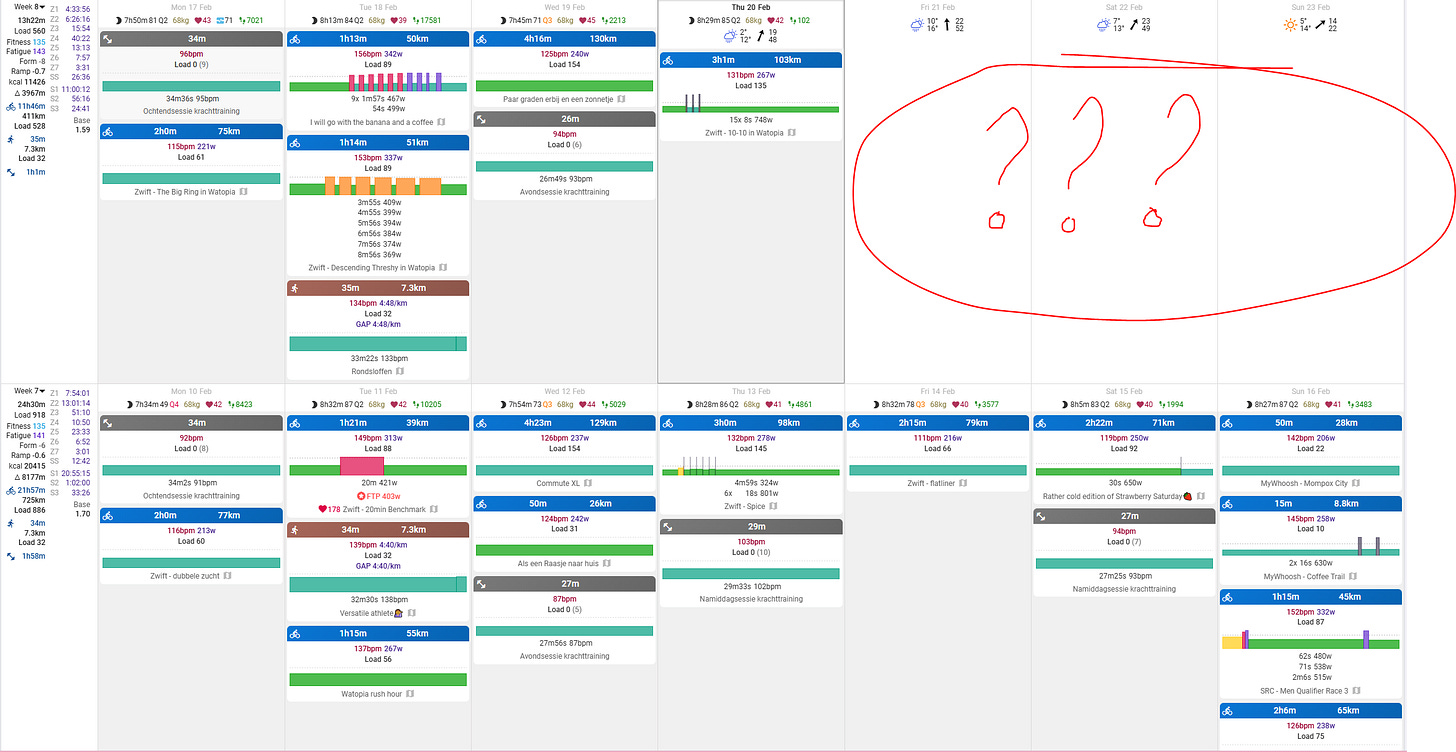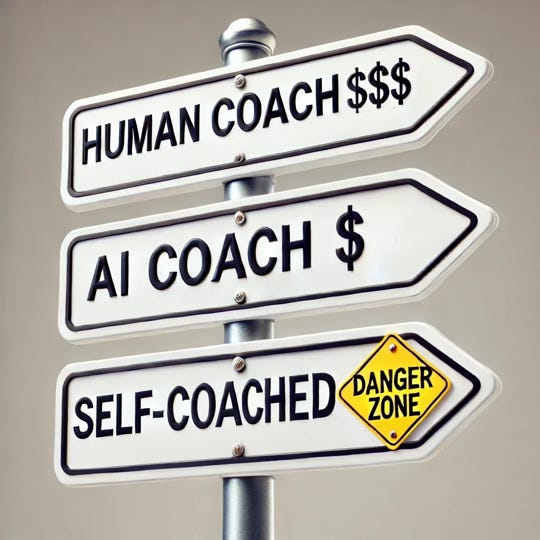Sorry Coach, You Are Too Expensive.
About AI coaches, human coaches and an ode to the self-coached athlete.
Welcome! For those who are new here — I’m Arne, a passionate cyclist and engineer with an interest in AI. I explore how technology, particularly artificial intelligence, is transforming sports—or not—and what it means for athletes, coaches and sport enthusiasts. Be sure to check the social channel as well:
You are your best coach. That’s the truth. How did you sleep (don’t ask your Garmin 😉)? Are you tired? Are you feeling great? What’s the weather like at your place? How’s the cold getting along? How’re things at work? Is your baby still crying three times per night? There is only one person who knows the answer to all these questions without asking. You.
Why we want a coach
Yet, many of us seek guidance from a coach to help us determine and adapt our training schedules. And this makes sense. Less experienced athletes turn to a coach to find a starting point – to get an idea of what a training schedule should look like and to understand the basic principles of training. The experienced athlete looks for a coach to find a spokesperson and gain confidence in their training: “Coach put it on the schedule, so it must be the best option.” It can be comforting to stop thinking and just execute.
Stop thinking and just execute. That might be the USP of any coach: the coach does the thinking and the athlete only needs to execute. Doubt is the Achilles' heel of all athletes. Any athlete that tells they never have any doubts is lying. We (unconsciously) doubt everything. Did I train too much, too little? Should I do Vo2 or threshold today? Should I eat more of this or that? Are these new shoes causing my knees to hurt? Doubt costs energy and takes away focus on what matters. That is why we all aspiring athletes like to have a coach.
Trust the process
A coach's main asset is to take away our doubts. Athletes trust their coaches to have the knowledge to compose a plan that will lead to the best result for that particular person. We trust their human intelligence and thus we “trust the process” (cringe) we signed up for. However, artificial intelligence is challenging the USP of the human coach. AI has become such a buzzword that nowadays we put an 'AI' stamp on everything. Companies leverage the general sentiment: “It is AI, so it must be good.”
“It is AI so it must be good”.
This thought helped the rise of AI coaching apps. For 10-20 EUR per month you can get a subscription to an AI coaching platform. In return you get an adaptive training plan and a weekly schedule tailored to you. No thinking, just execute, happy athlete.
AI vs a human coach
Are these AI coaches any good or should you go with the human alternative? Hard to tell. Many AI coaching platforms back their effectiveness with testimonials and data showcasing their customers' great results in training. Although true, this is a distorted image. It is not the schedule or sessions that make the difference. It is purely the athletes adhering and committing to it that makes the difference. An off-the-shelf training plan would yield similar results. However, these are not adaptive, and many athletes fall off the wagon when they miss a session – either losing motivation or overcompensating. It is the adaptability of AI coaching platforms and the trust athletes place in the generated plan that make the difference’. This is, in fact, very powerful and perfectly satisfies our 'don’t-think-just-execute' desires.
However, this is nothing that a real coach cannot do. On the contrary, a good coach can do better. AI is limited to looking at data points to build your schedule. With a human coach you can discuss more in depth: how is your joy in certain training sessions, what capabilities are you missing in races, how is strength training in the morning affecting your evening session etc. AI coaches are not able to tackle this type of in-depth feedback (yet) and adapt training sessions accordingly. However, if you don’t care about this level of discussion, save yourself 150 EUR and go with the AI coach.
The self-coached athlete
At last, and I could write a full article on this topic, the self-coached athlete. The ultimate athlete who is knowledgeable enough to create their own plans, has strong self-awareness and reflection skills, and has intrinsic motivation. (You can guess if I am self-coached? 😁).
Coaching yourself is definitely the cheapest option. Nevertheless, it is also the riskiest one. Speaking from my own experience – and from what I hear from other self-coached athletes – being honest with yourself is the hardest part. Taking a third-person perspective on your own situation is what you should be doing, but rarely do. It is often the case that the athlete is too hard or too soft with himself/herself.
Got a little headache and a stuffy nose? The self-destructive athlete would still go full gas and wreck themselves. In contrast, the self-pity athlete would take a week off the bike to be absolutely sure to fully recover. The best option probably lies somewhere in-between. An (AI) coach can be of great help to find that balance. Nevertheless, self-coached athletes take accountability for their fitness in their own hands. In return they have full freedom to experiment with training and do what they want. Come up with a balanced schedule, then either ignore it or overdo it. Think and don’t execute. Well, at least we had fun.

List of AI coaching apps worth exploring
There are a lot of AI coaching apps available. If you're interested, be sure to check out these:
JOIN – creates training plans that are fully adaptive. You can change, skip or add workouts and the plan will adapt automatically.
TrainerRoad – very similar to JOIN. Mostly a matter of personal preference to choose one or another.
CoachCat – provides you with custom training plans based on your availability and goals, just like JOIN and TrainerRoad. A nice feature is that in CoachCat you can interact with your ‘coach’ via chat, adding a human touch. The company behind CoachCat, FasCat also offers human coaches (for 10x the price).
Xert – focuses on providing you with advice and insights on your training sessions and workload. Xert Adaptive Training Advisor gives you a workout suggestion that matches your goal and current training load.
The apps above are mainly aimed at cycling. If you have experience with AI training platforms for other sports or additions to the list above, let me know!



